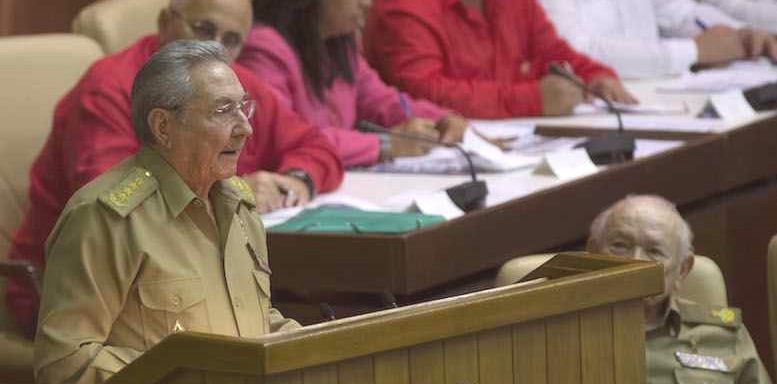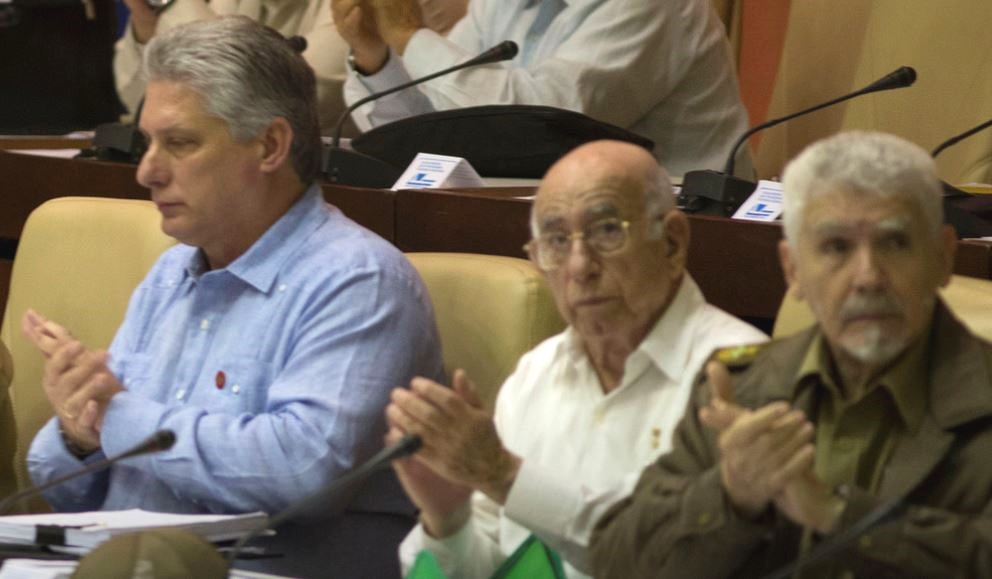
President Castro’s address to the National Assembly (Excerpts)
Excerpts from address by President Raúl Castro Ruz to the National Assembly of the People’s Power on Tuesday (Dec. 29) in Havana’s Palace of Conventions. Translation is by Progreso Weekly.
—
ON PRODUCTION: Despite the impact of the international economic crisis, worsened in our case by the effects of the United States’ blockade, which remains unchanged, as well as the foreign financial restraints, which have sharpened in the second semester, the Gross Domestic Product (GDP) this year rose by 4 percent, which is undeniably a good result amid these circumstances.
All productive sectors are growing, although some fail to reach the planned growth. Social services maintain levels that are similar to last year’s.
ON TOURISM: The number of visitors rose to 3.5 million, which constituted the highest growth recorded since the country decided to bet on the development of tourism. It should not be ignored that this result is obtained even though Cuban continues to be the only country in the world that U.S. citizens are forbidden to visit as tourists.
ON THE NATIONAL DEBT: Despite the financial limitations we continue to face, we have met the commitments assumed in the different processes of debt re-negotiations with foreign lenders, and the trend toward a gradual recovery of the international credibility of our economy has been reinforced.
The latest concrete evidence in this direction was the important multilateral accord reached Dec. 12 in the French capital with the 14 countries, creditors of Cuba, that form the ad hoc group known as the Paris Club, which allowed us to solve an old problem, taking into consideration the reality and the possibilities of the Cuban economy.
This accord begins a new stage in our economic, commercial and financial relations with the participating countries, since it facilitates our access to mid- and long-range financing, which are very necessary for the execution of investments anticipated in our development plans.
I confirm the willingness of the Cuban government to honor the commitments resulting from this and other accords reached in the renegotiation of our debt with other States and their private sectors.
ON PROJECTED GDP GROWTH: Our Gross Domestic Product will continue to grow in the next year, but at a slower pace — 2 percent — because we anticipate financial limitations associated with the drop in revenues for our traditional goods for export, such as nickel, since their prices will decline in the world market.
OUR PRESSING TASKS: We need to maximize our reserves of efficiency, concentrate our resources on the activities that generate export revenue and substitute imports. [We need to] make the investment process more efficient and increase the investments in the productive and infrastructure sectors, prioritizing the sustainability of power generation and the increase of efficiency in the use of power carriers.
At the same time, we must reduce any expenditures that are not essential and take advantage of the available resources with more rationality, with the aim of developing the country.

ON THE ELECTIONS IN VENEZUELA: We are certain that there will be new victories by the Bolivarian and Chavist Revolution under the direction of comrade Nicolás Maduro Moros […] in the face of the permanent destabilizing onslaught from the right, encouraged and supported from abroad.
We are convinced that […] the Venezuelan people and the civilian-military union will not allow the dismantling of the Revolution’s achievements and will know how to turn this setback into victory.
ON THE MIGRANT CRISIS: At present, several thousand Cuban citizens are in Costa Rica from other countries in the region with the intention of traveling to the United States. On their journey, these people, who left Cuba legally, become the victims of unscrupulous traffickers and criminal gangs that do not hesitate to endanger the lives of the Cuban migrants.
From the very start of this situation, our government has been in contact with the governments of the area, seeking an adequate and swift solution […] taking into account the difficult circumstances in which they find themselves. Cuba has reiterated its commitment in favor of a legal, orderly and safe emigration, as well as the right of Cuban citizens to travel, emigrate and return to this country, complying with our migration laws.
As pointed out by the Statement by the Revolutionary Government published on Dec. 1, the policy of “dry-feet-wet-feet,” the parole program for Cuban doctors, and the Cuban Adjustment Act continue to be the main stimulant for the irregular emigration from Cuba to the United States.
ON U.S.-CUBA RELATIONS: We have reiterated to the government of the United States that, in order to normalize bilateral relations, the blockade must be lifted and the territory usurped by the Guantánamo Naval Base must be returned, just as I explained in my address to the Council of Ministers on Dec. 18, in which I also reaffirmed that no one should expect Cuba to abandon the cause of independence or renounce the principles and ideals for which several generations of Cubans have struggled for a century and a half.
To advance in that process, the right of every State to select the economic, political and social systems it wishes must be respected, without interference of any form. We shall never accept conditions that injure the sovereignty and dignity of our motherland.
What’s essential right now is for President Barack Obama to utilize with determination his broad executive powers to modify the application of the blockade, which will allow what’s been achieved to make sense and permit the production of solid progress.
[To read the entire speech, in Spanish, click here.]


